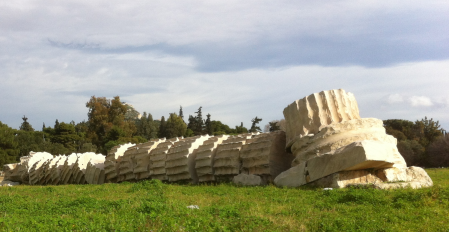Some people have to work for a living.
This reality does not just go away. In the next few months, we will see every shade of compliance and non-compliance with pandemic prohibitions and practices.
In a free nation, we should get used to the fact that not everyone is in agreement about strategies to strike a balance between defeating Covid and preventing a new epidemic of poverty.
Remember too, strategies vary, state by state. It just so happens that the New York Covid epicenter is also the media capital of this continent. Stringent restrictions for defeating Covid have been admirably initiated and administered by Gov. Cuomo in New York State. Media mouths and talking heads headquartered in the Northeast reflect the urgency of that region’s life-or-death struggle with coronavirus.
New York — especially the City — is a special case due to the extreme density of population there and the widespread use of mass transit.
In other states, however, especially southern states in which mass transit is not as highly developed, population is more widely spread out. There is far more space already existing between people, towns, suburbs, institutions, retail outlets, public parks, etc. Governors in these states, including many in the west and southwest, will have— regarding their policy responses and timetable — more flexibility in their judgements. Every Governor, every public official is now involuntarily sucked into an unprecedented, massive public problem: how to balance public policies to accomplish the defeat of Covid vs. preserving what is left of economic viability.
The immensity of this epidemic’s destruction is unprecedented in the history of our nation . . . except perhaps the dire destruction and loss of life of the Civil War, and the 1918 wartime war against a flu epidemic.
Official responses in states with low population density will not be as extremely restrictive as in high-density states; nor will such prohibitions extend as far into the months ahead. Balancing Covid-control against this unexpected 1930’s-ish poverty wave will be no walk in the park. Our entire nation–indeed the whole world–has been blindsided by this epidemic.
As Governors and other officials respond according to their states’ respective needs, so will the citizens therein be reacting in a wide variety of strategies,with some citizens acting much more cooperatively in the public space than others.
Many Americans still take quite seriously the words of Patrick Henry in 1775:
“Give me liberty or give me death.”
Liberty does not come cheaply. The cost is dear. Back in the day. . . 1970ff, Crosby Stills Nash Young Gilmour sang out a dirgeful reflection of just what this life comes down to. . .
https://www.youtube.com/watch?v=U-Y0SMitMpk
“Find the cost of freedom, buried in the ground.”
Do not expect all the citizens of this free nation to agree on all the strategies for controlling Covid while preserving freedom. Many will die, but many will not. The best you can do is be an example in wearing your PPE and mask while ardently exhorting others to do so, for as long as this damned disease requires.
Let’s not forget, though, that freedom of assembly is a Constitutional right. Public declarations in that realm are not too be taken lightly. Ultimately such restrictions are subject to the 1st Amendment assurance of our shared liberty.
So don’t expect that all Americans will agree with the myriad of public prohibitions and practices that are provoked by the spread of this disease; do expect that you will hear about, read about, and surely encounter in public places . . . unmasked citizens who are not wearing the politically correct mask and/or PPE. Pshaw! on them.
Also, get used to the fact that our showman President is clueless when it comes to speaking publicly about this very large problem. In his public persona, the man is too obsessed with interpreting every development in terms of whether those persons are for him or against him. If you don’t like what he does, vote for Joe.
As for me, I don’t care who is President next year. I care about defending my family and our households against this disease, while upholding the freedoms we are entitled to as Americans.
We sincerely hope that whatever measures our President initiates, implements, advocates . . . will effectively reinforce the efforts and precautions undertaken by all Americans to slap this dreaded disease back down into the ground.
Lean on your state .gov and local officials for guidance.
As for me and mine (my ICU nurse wife). . . we wear the mask and use hand sanitizer while visiting enclosed places in our Appalachian town.
And remember: not every masked person you meet is a bandit.












